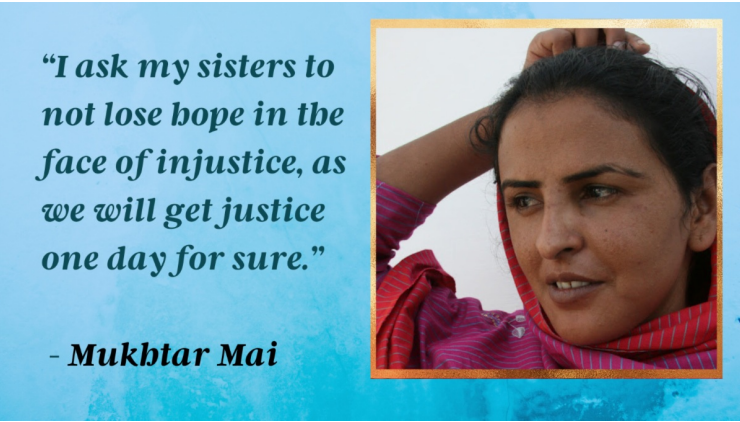Wisdom of Our Elders
These voices echo through time, yet their message remains heartbreakingly relevant today. From Kamala Bhasin to Amrita Pritam – each quote in this collection reminds us that the fight against domestic violence and the journey toward women's empowerment is universal and ongoing. These elders didn't just speak; they acted, fought, and paved ways through darkness. Their words aren't just history – they're a torch lighting our path forward. Sharing their wisdom because silence has never created change.
Dr. Rajini Thiranagama was a Sri Lankan -Tamil human rights activist and feminist who was allegedly shot dead by Tamil Tigers cadres after she criticized them for their atrocities. At the time of her assassination, she was the head of the Department of Anatomy at the University of Jaffna and an active member of the University Teachers for Human Rights, Jaffna branch of which she is one of the founding members. Embracing feminism and a belief in human rights, Rajani felt that women in particular were the primary casualties of war.
Kamala Bhasin ( April 1946 - Sept. 2021 ) Indian developmental feminist activist, poet, author, and social scientist. She worked with underprivileged women from tribal and working communities, often using posters, plays and other non literary methods to get through to communities with low literacy rates.
Roquiah was a Bengali writer, thinker, educationist, social activist, advocate of women's rights, and widely regarded as the pioneer of women's education in the Indian subcontinent, currently Bangladesh.
Asma Jilani Jahangir was a Pakistani human rights lawyer and social activist who co-funded and chaired the Human Rights Commision of Pakistan. In 2005 Jahangir was nominated for the Nobel Peace Prize as part of the 1000 Women for the Nobel Peace Prize project. Jahangir is the recipient of the 2010 Freedom of Religion award presented by the Dutch-based Four Freedoms Foundation.
Kumari Jayawardena is a leading feminist activist and academic in Sri Lanka. Her work is part of the canon Third-world feminism which conceptualizes feminist philosophies as indigenous and unique to non-Western societies and nations rather than offshoots of Western feminism.
Sabeen Mahmud was a progressive human rights activist and social worker. Mahmud wanted to challenge injustice and discrimination, and to encourage critical thinking. She was fatally shot by gunmen on her way home after hosting a seminar.
Anuradha Koirala is the founder and chairperson of Maiti Nepal, a non-profit to combat human sex trafficking. Ms. Koirala has earned respect and recognition for the courage she has demonstrated in fighting against human traffickers, her legacy of rescuing girls from red-light districts and her relentless work in preventing girls from being trafficked across the India-Nepal border. She is a recipient of 38 national awards in recognition of her courageous acts and lifetime achievement furthering the cause of children's and women's rights.
Mukhtaran Bibi, now known as Mukhtar Mai, is a Pakistani human rights activist from the village of Meerwala, Pakistan. Mukhtar Mai was gang raped in 2002 on the orders of a village council but became a symbol of hope for oppressed women.
Nelson Mandela has been dubbed the ultimate male feminist. Each year since 2009, the UN has called on nations to celebrate Nelson Mandela day, marking his contribution to the culture of peace and justice as a politcian and later as the President of South Africa. We look back on his remarkable initiatives to uphold gender-equality in nation-building, including guaranteeing constitutional rights and signing on to the CEDAW convention.
Saadat Hasan Manto was a Pakistani writer, playwright and author. Manto was much ahead of his time in analyzing society and writing about the hypocrisy existing within it. Manto’s ground-breaking work and his interest in tabooed topics, portraying women’s power and agency classifies it as feminist literature.
The national poet of Bangladesh was a lifelong rebel of all oppressions limiting the human potential and a vocal proponent for women's rights. His poems and lyrics continue to inspire a new generation of activists against violence against women.
Bhimrao Ramji Ambedkar (1891 - 1956) was an Indian jurist, economist, social reformer and political leader who headed the committee drafting the Constitution of India from the Constituent Assembly debates, served as Law and Justice minister in the first cabinet of Jawaharlal Nehru, and inspired the Dalit Buddhist movement after renouncing Hinduism.
Amrita Pritam—an extraordinary Indian novelist, essayist, and poet—was more than just a literary figure; she was a fearless advocate for women’s rights who understood women’s pain and reflected it through her writings. Unapologetically bold, she questioned the subjugation of women not only through her writings but also in the way she lived her life. Amrita’s legacy is one of courage, defiance, and an unwavering commitment to breaking the chains of patriarchy. Her voice still echoes, inspiring countless others to stand tall and speak their truths.













